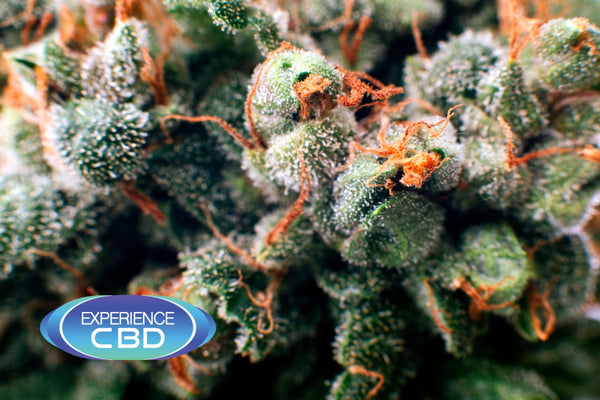No Products in the Cart
FREE EXPRESS SHIPPING US ORDERS OVER $50 | COST AT CHECKOUT.
LEARN MORE FROM OUR BLOGS HERE.
FREE EXPRESS SHIPPING US ORDERS OVER $50 | COST AT CHECKOUT.
LEARN MORE FROM OUR BLOGS HERE.

Tetrahydrocannabinolic acid (THCA) and Tetrahydrocannabinol (THC) are two prominent cannabinoids found in cannabis plants. While they may sound similar, these compounds have distinct properties and effects. In this comprehensive guide, we'll delve into the chemical structures, effects, medical uses, and psychoactive properties of THCA and THC to understand their differences better.
THCA and THC have similar chemical structures but differ in their arrangement of atoms. THCA is the acidic precursor of THC, found in raw cannabis plants. When exposed to heat, THCA undergoes decarboxylation, converting into THC, the psychoactive compound responsible for the "high" associated with cannabis consumption.
THCA has a carboxylic acid group (-COOH) attached to the THC molecule, which is responsible for its non-psychoactive properties. Its chemical structure is crucial in understanding its role as a precursor to THC.
THC lacks the carboxylic acid group present in THCA, making it psychoactive. Its chemical structure allows it to bind to cannabinoid receptors in the brain and body, leading to various physiological effects.
One of the key differences between THCA and THC lies in their psychoactive properties. While THCA is non-psychoactive, THC produces euphoric effects when consumed, leading to feelings of relaxation and altered perception.
Both THCA and THC have potential therapeutic benefits, but they differ in their applications. THCA is believed to possess anti-inflammatory, neuroprotective, and antiemetic properties, making it potentially beneficial for conditions like arthritis, neurodegenerative diseases, and nausea. On the other hand, THC is widely used for its analgesic, appetite-stimulating, and antiemetic effects, making it valuable in managing pain, appetite loss, and chemotherapy-induced nausea.
In conclusion, THCA and THC are two distinct cannabinoids with unique properties and effects. While THCA offers potential therapeutic benefits without psychoactive effects, THC is valued for its psychoactive properties and wide-ranging medical applications. By understanding the differences and benefits of THCA and THC, individuals can make informed decisions about their cannabis consumption and explore the potential of these compounds in promoting health and well-being.
FAQs: THCA vs THC
Q: What is the difference between THCA and THC?
A: THCA (Tetrahydrocannabinolic acid) is the acidic precursor to THC (Tetrahydrocannabinol), the psychoactive compound found in cannabis. While THCA is non-psychoactive, THC produces euphoric effects when consumed.
Q: What are the benefits of THCA and THC?
A: THCA and THC offer various potential benefits. THCA may have anti-inflammatory, neuroprotective, and antiemetic properties, while THC is known for its analgesic, appetite-stimulating, and mood-enhancing effects.
Q: How do THCA and THC differ in medical use?
A: THCA and THC have distinct medical applications. THCA may be beneficial for conditions like arthritis, neurodegenerative diseases, and nausea, while THC is often used to manage pain, appetite loss, and chemotherapy-induced nausea.
Q: Are there any psychoactive differences between THCA and THC?
A: Yes, there are significant psychoactive differences between THCA and THC. THCA is non-psychoactive, whereas THC produces euphoric effects and alters perception when consumed.
Q: Can THCA be converted to THC?
A: Yes, THCA can undergo decarboxylation, a process often induced by heat, to convert into THC. This conversion is essential for activating the psychoactive properties of cannabis when it is smoked or heated.